Luxury Cars That Don't Need Premium Gas

Luxury is the antithesis of austerity. If you want the finest, fastest or most feature-laden, you’re going to have to fork over cash and usually lots of it.
This is especially true in the automotive world where high-end vehicles often cost an arm, a leg and a sizable chunk of your torso. But it’s not just the purchase price of a premium car or truck that will savage your budget, maintenance and fuel costs can add up faster than the national debt.
In fact, nearly every luxury automobile on the market today recommends premium-grade gasoline, but not all. Mercifully some will run just fine on the dregs of a filling station’s fuel cistern.
Broadly speaking there are three categories of octane requirement. In some vehicles, it’s a-OK to run good ol’ regular-grade petrol. However, in others manufacturers recommend premium for optimum performance. And finally in the third group high-octane gasoline is required for proper operation.
SEE ALSO: What is Octane?
As always it’s best to follow the manufacturer’s advice. Remember, octane is a measure of gasoline’s resistance to igniting while squeezed. Engines with higher compression ratios are specifically designed to run on fuel with greater octane. Using less than the spec can cause internal damage, though modern, computer-controlled powerplants are quite adaptable to varying fuel quality.
Accordingly, here’s a list of luxury vehicles that will happily run on regular-grade gasoline. On the following page is a list of other models that are recommended premium and others that require it.
Cadillac
The Cadillac ATS is a crowd-pleaser with thrilling dynamics and attractive styling both inside and out. Luckily for owners, several versions of this car will run on 87-octane fuel. Models equipped with either the 2.5-liter four-cylinder engine or the up-level 3.6-liter V6 happily burn regular, the latter can also digest E85.
The ATS’s big brother, the equally laudable CTS, is another crest-bedecked luxury car that runs on the cheap stuff, though only when equipped with GM’s 3.6-liter six shooter. Premium is recommended in those CTS fitted with the 2.0-liter turbo and required if powered by the range-topping force-fed V6. This is due to high octane gasoline’s resistance to pre-ignition – which small turbo engines are more susceptible to. For more information on small turbo engines, pre-ignition and what causes it, read our article ‘What is a Turbo Engine and Are They Reliable?’
Not surprisingly, Cadillac’s XTS also sidesteps premium when equipped with the base engine. Once again GM’s 3.6-liter V6 will burn regular fuel without any negative side effects.
And the same is true of the brand’s SRX. The only engine offered in this luxury crossover is – surprise, surprise – a 3.6-liter V6.
Genesis
The 5.0-liter Tau V8 found in the Genesis G90 is silky smooth, plus it runs on regular gasoline. If you put higher-octane stuff in there you may get even more performance, too. The sedan used to be offered with a 3.8-liter V6, which was also able to run on regular gasoline, but it was replaced with the premium-drinking 3.3-liter turbo V6.
The Genesis G80 sedan is another premium four-door. Its base 3.8-liter V6 runs on regular all day long, but if you opt for the 3.3-liter turbocharged V6, you’ll need to feed it the good stuff.
Lexus
Shifting gears, we move from Hyundai to Lexus, Toyota’s standard-bearing division. The brand’s ES350 luxury sedan features a 3.5-liter V6 engine that’s good for 268 horses. That’s relatively modest output these days, but this powerplant is silky smooth and burns 87-octane fuel.
And not surprisingly the hybrid version of Lexus’ ES350, the ES300h, runs on regular as well. According to the U.S. EPA this car stickers at 40 miles per gallon city, 39 highway and 40 MPG combined. That’s doubly good for budgets; this sedan takes the cheap stuff and is tremendously miserly. Cha-ching!
Lexus’ NX300h, a hybrid version of their all-new small crossover, also consumes 87-octane fuel. It features a 2.5-liter four-cylinder engine and has a total system output of 194 hp.
The RX350 is one of the most popular vehicles in the Lexus lineup, it helped pioneer the luxury crossover segment and has been tremendously popular. Examples are powered by a 3.5-liter V6 that puts out a modest 270 horses. The most efficient version averages 21 miles per gallon. Oddly enough the hybrid version recommends premium.
The CT200h is Lexus’ dedicated hybrid model; think of it as a leather-lined Prius. This car features an Atkinson-cycle 1.8-liter engine and a total system output of 134 hp.
Lincoln
All versions of the Lincoln MKZ happily run on regular-grade fuel, from models equipped with the 2.0-liter EcoBoost four-cylinder engine, to the up-level 3.7-liter V6, to the hybrid version. The company recommends regular across the board, though the 2.0-liter turbocharged four-cylinder engine will deliver maximum performance on 93-octane fuel.
It’s the same story with the larger MKS; 87 octane is recommended. This sedan’s base and optional engines will consume regular without issue, though it’s range-topping 3.5-liter EcoBoost V6 will crank out more power if you opt for more octane.
Lincoln’s new MKC crossover has been a much-needed sales success. In fact last month it was the brand’s second most popular model after the MKZ, with nearly 1,900 sold. Two engines are offered in this vehicle, both are EcoBoost powerplants and each one runs on recommended 87-octane gasoline.
The larger Lincoln MKT car-based utility will also use regular fuel without burning a hole in a piston or sending a connecting rod through the side of its block. Either engine will use the cheap stuff though the optional twin-turbo V6 will try a little harder with premium.
Finally there’s Lincoln’s MKX. This crossover’s standard 3.7-liter V6 runs on recommended 87-octane fuel, no questions asked.
Regular-Grade Gasoline
2015 Cadillac ATS Sedan (2.5-liter)
2015 Cadillac ATS Sedan/Coupe (3.6-liter V6, E85-capable)
2015 Cadillac CTS (3.6-liter V6, E85-capable)
2015 Cadillac XTS (3.6-liter V6)
2015 Cadillac SRX
2015 Lexus ES 350
2015 Lexus ES 300h
2015 Lexus NX 300h
2015 Lexus RX 350
2015 Lexus CT 200h
2015 Lincoln MKZ (87 octane recommended; maximum output with 2.0-liter EcoBoost engine achieved with 93-octane fuel)
2015 Lincoln MKZ Hybrid
2015 Lincoln MKS (87 octane recommended; maximum output with 3.5-liter EcoBoost engine achieved with 93-octane fuel)
2015 Lincoln MKC
2015 Lincoln MKT (87 octane recommended; maximum output with 3.5-liter EcoBoost engine achieved with 93-octane fuel)
2015 Lincoln MKX
Premium Recommended
2016 Acura ILX
2016 Acura MDX
2016 Acura RDX
2016 Acura RLX
2015 Acura TLX
2015 Aston Martin DB9
2015 Aston Martin Rapide S
2015 Aston Martin V8 Vantage/V8 Vantage S/Vantage GT/V12 Vantage S
2015 Aston Martin Vanquish
2015 Audi A3/S3/Cabriolet (diesel where applicable)
2015 Audi A4/S4
2015 Audi Diesel A6/S6 (diesel where applicable)
2015 Audi A7/S7/RS7 (diesel where applicable)
2015 Audi A8/S8/A8 W12 (diesel where applicable)
2015 Audi Q3
2015 Audi Q5/SQ5 (diesel where applicable)
2015 Audi Q7 (diesel where applicable)
2015 Audi Allroad
2015 Audi A5/S5/RS5/Cabriolet
2015 Audi R8 V8/V10/V10 Plus/Spyder
2015 Audi TT/TTS/Roadster
2015 BMW 228i Coupe/228i xDrive Coupe/228i Convertible/228i xDrive Convertible
2015 BMW M235i Coupe/M235i xDrive Coupe/M235i Convertible
2015 BMW 320i/328i/328d/335i/320i xDrive/328i xDrive/328d xDrive/335i xDrive/328i xDrive Gran Turismo/335i xDrive Gran Turismo/328i xDrive Sports Wagon/328d xDrive Sports Wagon/ActiveHybrid 3 (ultra low-sulfur diesel where applicable)
2015 BMW 428i/435i/428i xDrive/435i xDrive/428i Convertible/435i Convertible/428i xDrive Convertible /435i xDrive Convertible/428i Gran Coupe/435i Gran Coupe/428i xDrive Gran Coupe/435i xDrive Gran Coupe
2015 BMW 528i/535i/535d/550i/528i xDrive/535i xDrive/535d xDrive/550i xDrive/535i Gran Turismo/550i Gran Turismo/535i xDrive Gran Turismo/550i xDrive Gran Turismo/ActiveHybrid 5 (ultra low-sulfur diesel where applicable)
2015 BMW 640i/650i/640i xDrive/650i xDrive/640i Gran Coupe/650i Gran Coupe/640i xDrive Gran Coupe/650i xDrive Gran Coupe/640i Convertible/650i Convertible/640i xDrive Convertible/650i xDrive Convertible/Alpina B6 Gran Coupe
2015 BMW 740i/750i/760Li/740Li/750Li/740Li xDrive/750i xDrive/750Li xDrive/740Ld xDrive/Alpina B7 (ultra low-sulfur diesel where applicable)
2015 BMW X1 sDrive28i/xDrive28i/xDrive35i
2015 BMW X3 sDrive28i/xDrive28i/xDrive35i/xDrive28d (ultra low-sulfur diesel where applicable)
2015 BMW X4 xDrive28i/xDrive35i
2015 BMW X5 sDrive35i/xDrive35i/xDrive35d /xDrive50i (ultra low-sulfur diesel where applicable)
2015 BMW X6 sDrive35i/xDrive35i/xDrive50i
2015 BMW Z4 sDrive28i/sDrive35i/sDrive35is
2015 BMW M3/M4 Coupe/M4 Convertible/M5/M6 Coupe/M6 Gran Coupe/M6 Convertible
2015 BMW X5 M
2015 BMW X6 M
2014 BMW i3 (range extender)
2014 BMW i8
2015 Cadillac ATS Sedan/Coupe (2.0-liter turbo)
2016 Cadillac ATS-V Sedan/Coupe
2015 Cadillac CTS (2.0-liter turbo)
2015 Cadillac Escalade/ESV
2015 Infiniti Q70 Hybrid
2015 Infiniti QX50
2015 Infiniti QX60
2015 Infiniti QX60 Hybrid
2015 Infiniti QX80
2015 Lexus LS 600h L
2015 Lexus LX 570 (performance numbers achieved with 91-octane unleaded fuel)
2015 Lexus RX 450h (performance numbers achieved with 91-octane unleaded fuel)
2015 Lincoln Navigator (premium recommended, regular capable)
Premium Required
2015 Alfa Romeo 4C
2015 Bentley Continental GT/GT Convertible/GT V8/GT V8 Convertible/GT V8 S/GT V8 S Convertible/GT Speed/GT Speed Convertible/GT3-R
2015 Bentley Flying Spur/Flying Spur V8
2015 Bentley Mulsanne/Mulsanne Speed
2015 Cadillac CTS (3.6-liter twin-turbo V6)
2016 Cadillac CTS-V
2015 Cadillac ELR
2015 Cadillac XTS (3.6-liter twin-turbo V6)
2015 Ferrari 458 Italia/Spider/Speciale/Speciale Spider*
2015 Ferrari California T*
2015 Ferrari F12*
2015 Ferrari FF*
2015 Infiniti Q40
2015 Infiniti Q50
2015 Infiniti Q60 Coupe
2015 Infiniti Q60 Convertible
2015 Infiniti Q60 IPL Convertible
2015 Infiniti Q70
2015 Infiniti Q70L
2015 Infiniti QX70
2015 Jaguar XJ
2015 Jaguar XK
2015 Jaguar XF
2015 Jaguar F-Type*
2015 Lamborghini Aventador*
2015 Lamborghini Huracán*
2015 Lamborghini Veneno*
2015 Land Rover Range Rover Evoque*
2015 Land Rover Range Rover Sport
2015 Land Rover Range Rover
2015 Land Rover Discovery Sport*
2015 Land Rover LR2*
2015 Land Rover LR4*
2015 Lexus RC 350
2015 Lexus RC F
2015 Lexus GS 350
2015 Lexus GS 450h
2015 Lexus IS 250/350
2015 Lexis IS 250C/350C
2015 Lexus LS 460/460 L
2015 Lexus NX 200t
2015 Lexus GX 460
2015 Maserati Ghibli V6/V6 SQ4*
2015 Maserati Gran Turismo/Gran Turismo Convertible*
2015 Maserati Quattroporte GTS/Quattroporte SQ4 V6*
2015 Mercedes-Benz C250 Coupe/C350 Coupe/C300/C300 4Matic/C400 4Matic/C63 AMG Coupe*
2015 Mercedes-Benz CLA250/CLA250 4Matic/CLA45 AMG 4Matic* (or E85 if FFV capable)
2015 Mercedes-Benz CLS400/CLS400 4Matic/CLS550/CLS550 4Matic/CLS63 AMG S 4Matic*
2015 Mercedes-Benz E250 BlueTec/E250 Bluetec 4Matic*
2015 Mercedes-Benz E350/E350 4Matic/E350 4Matic Wagon/E350 Convertible/E350 Coupe*
2015 Mercedes-Benz E400/E400 4Matic /E400 Convertible/E400 4Matic Wagon/E400 Coupe/E400 4Matic Coupe/E400 Hybrid/E550 Coupe/E550 Convertible/E63 AMG 4Matic/E63 AMG S 4Matic/E63 AMG S 4Matic Wagon*(or E85 if FFV capable, diesel where applicable)
2015 Mercedes-Benz G550/G63 AMG*
2015 Mercedes-Benz GL350 BlueTec 4Matic/GL450 4Matic/GL550 4Matic/GL63 AMG* (or diesel where applicable)
2015 Mercedes-Benz GLA250/GLA250 4Matic/GLA45 AMG 4Matic*
2015 Mercedes-Benz GLK 250 BlueTec 4Matic/GLK350/GLK350 4Matic* (or diesel where applicable)
2015 Mercedes-Benz ML250 BlueTec 4Matic/ML350/ML350 4Matic/ML400 4Matic/ML63 AMG* (or E85 if FFV, diesel where applicable)
2015 Mercedes-Benz S550/S550 4Matic/S550 4Matic Coupe/S600/S63 AMG 4Matic/S63 AMG 4Matic Coupe/S65 AMG/S65 AMG Coupe*
2015 Mercedes-Benz SL400/SL550/SL63 AMG/SL65 AMG*
2015 Mercedes-Benz SLK250/SLK350/SLK55 AMG*
2015 Mercedes-Benz SLS AMG GT Coupe/SLS AMG GT Roadster*
2015 Porsche Boxster/Boxster S/Boxster GTS*
2015 Porsche Cayman/Cayman S/Cayman GTS*
2015 Porsche 911 Carrera/911 Carrera 4/911 Carrera 4 Cabriolet/911 Carrera 4 GTS/911 Carrera 4 GTS Cabriolet/911 Carrera 4S/911 Carrera 4S Cabriolet/911 Carrera Cabriolet/911 Carrera GTS/911 Carrera GTS Cabriolet/911 Carrera S/911 Carrera S Cabriolet/911 Carrera GT3/911 GT3/911 Targa 4/911 Targa 4S/911 Turbo/911 Turbo S*
2015 Porsche Panamera/Panamera 4/Panamera 4S/Panamera 4S Executive/Panamera GTS/Panamera S/Panamera S E-Hybrid/Panamera Turbo/Panamera Turbo Executive/Panamera Turbo S/Panamera Turbo S Executive*
2015 Porsche Macan/Macan Turbo*
2015 Porsche Cayenne Diesel/Cayenne S/Cayenne S E-Hybrid/Cayenne Turbo (diesel where applicable)*
2015 Porsche 918 Spyder*
2015 Rolls-Royce Ghost/Ghost EWB*
2015 Rolls-Royce Phantom/Phantom Coupe/Phantom Drophead Coupe/Phantom EWB*
2015 Rolls-Royce Wraith*
*These vehicles are listed by FuelEconomy.gov as taking premium-grade gasoline. Specific octane requirements were not explicitly listed in manufacturer specifications. Luxury Cars that Run on Regular Gas
For more stories like this please check out our Tips and Advice section.

Born and raised in metro Detroit, Craig was steeped in mechanics from childhood. He feels as much at home with a wrench or welding gun in his hand as he does behind the wheel or in front of a camera. Putting his Bachelor's Degree in Journalism to good use, he's always pumping out videos, reviews, and features for AutoGuide.com. When the workday is over, he can be found out driving his fully restored 1936 Ford V8 sedan. Craig has covered the automotive industry full time for more than 10 years and is a member of the Automotive Press Association (APA) and Midwest Automotive Media Association (MAMA).
More by Craig Cole



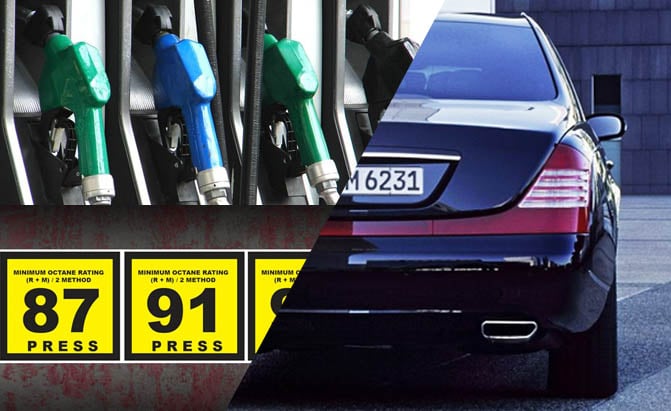



















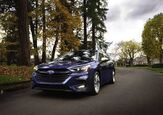






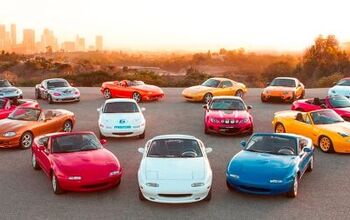


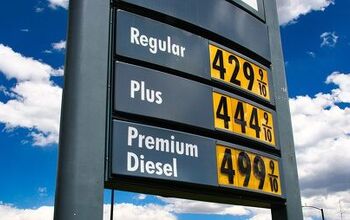
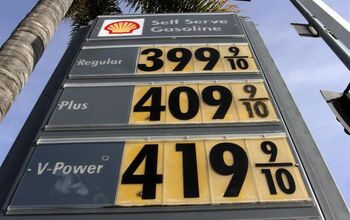
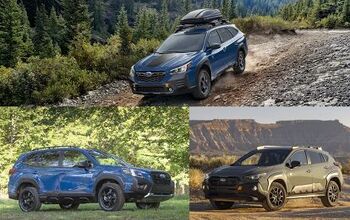



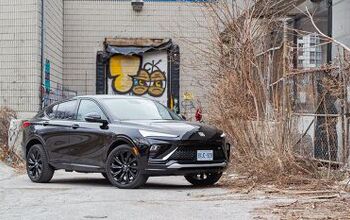
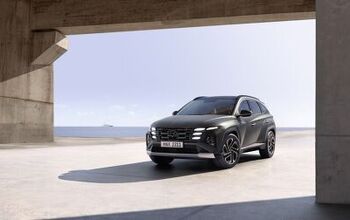
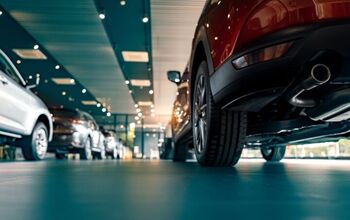
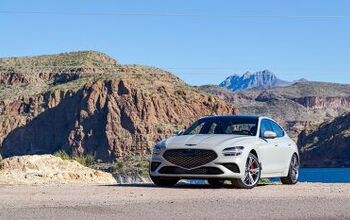
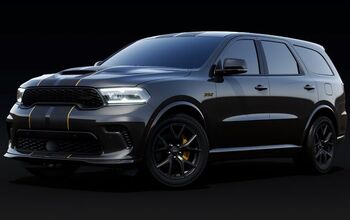
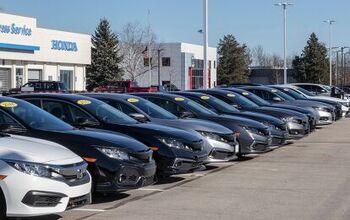
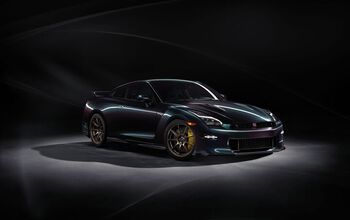
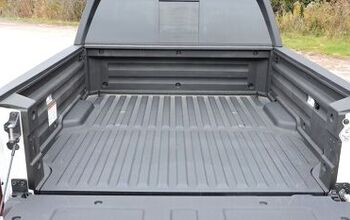
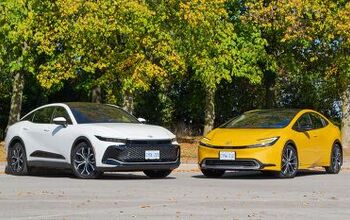
Comments
Join the conversation
2014 Audi S5 and I'm imagining up to 2022 REQUIRES Premium, just like most Audis. The info above is erroneous. Have a look at the fuel door. In fact, 95 octanes are required, which is the minimum in Europe, but 91 is acceptable since it's the minimum Premium fuel in NA.
Anything less than 89 is absolutely terrible for any vehicle. Just because it *can* doesn't mean you *should*. If you can afford to run Chevron 89+ or Shell Nitro, expect your vehicle to have issues after 120k miles. Want your car to last 300k before needing anything replaced? 1. Royal purple everything. Fuel additives, engine and transmission oil, oil filter, coolant stabilizer, ect. 2. Lucas oil stabilizer mixed in engine oil and transmission oil. 3. K&N airfilter. Let your car breath. Emissions has them choked to the point of causing engine wear. 3. Never run 87 for more than 1 tank at a time. And never consistently. That stuff is DIRTY unless its Chevron. If you can't afford Chevron, be prepared to grab a bottle of Royal purple fuel additives every other time you fill up. Optional: 4. Muffler delete. Mufflers cause carbon build up. 5. Titanium exhaust for lower temperatures, Prolonging engine life.